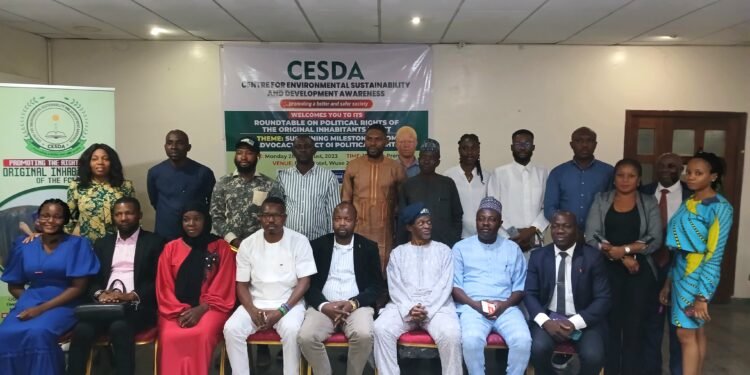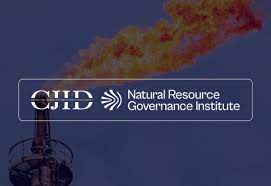By Daniel Otera and Dorcas Ajala
The Centre for Environmental Sustainability and Development Awareness (CESDA) recently organized a enlightening Media Roundtable on the pressing issues surrounding the political rights of the Original Inhabitants (OI) of the Federal Capital Territory (FCT). The event aimed to sustain the progress achieved through past advocacy endeavors in support of the FCT OIs’ political rights.
Held on Monday, August 28, 2023, the event commenced with an opening statement by Comrade Sola Babalola, CESDA’s Executive Director, who underscored the importance of the initiative. He highlighted the longstanding political, socio-cultural, and socio-economic challenges faced by the original inhabitants, with their livelihoods significantly impacted. Babalola emphasized CESDA’s persistent advocacy work and engagement with various stakeholders to secure recognition of the political rights of the FCT OIs.
While acknowledging recent strides, including the appointment of an indigenous FCT inhabitant as a federal minister, achieved through collective efforts, Babalola stressed the urgency of further action to protect the rights of the Original Inhabitants. He expressed concerns over the lack of practical recognition, citing issues such as land displacement and the loss of livelihoods. He called for fair and adequate compensation for those affected.
The keynote presentation by Mr. Armsfree Ajanaku centered on consolidating gains made following the historic appointment of an FCT original inhabitant as a federal minister. He praised the contributions of civic groups, including CESDA, in advocating for the political rights of the FCT OIs, highlighting their impact in the political arena. Ajanaku recognized the significance of ministerial appointments but cautioned against viewing them as the sole objective. True political empowerment, he argued, hinges on tangible improvements in the lives of ordinary FCT inhabitants.
READ ALSO: CHRICED’s FCT Indigenous Rights Project: Multiple Milestones And Pending Challenges
Barrister Zhidu DD, a lawyer and activist representing the FCT original inhabitants, delivered a thought-provoking paper outlining key constitutional amendments required to address the challenges faced by the OIs. He underscored the need to amend Section 292 of the 1999 Constitution, which currently vests all FCT land in the federal government without adequate compensation for indigenous people.
Barrister DD also called for the amendment of Section 297, which allows the allocation of lands to private developers, potentially disregarding indigenous communities’ interests. Furthermore, he emphasized the necessity of a second-tier government to grant indigenous FCT inhabitants full voting and representative rights, similar to other states. Barrister DD highlighted the lack of higher education institutions within the FCT and advocated for the creation of additional Senatorial districts, Area councils, and House of Representatives representatives, aligning the FCT’s status with other states.
Comrade Tijjani Abdulkareem, the Executive Director of SERDEC, addressed the socio-economic and political rights of the OIs in his keynote speech. He highlighted SERDEC’s role alongside other advocacy groups in providing essential data to political office holders and informing them about available empowerment programs for indigenous inhabitants. Abdulkareem urged all stakeholders to actively champion the rights of the original inhabitants, emphasizing that “an injustice to one is an injustice to all.” He called upon the media to venture beyond their comfort zones, documenting the realities, marginalization, discrimination, and social injustices faced by the OIs outside the AMAC, shedding light on their stories and struggles.
In conclusion, the collective effort to advocate for the rights of the OIs is an ongoing indigenous fight. Victory may not be immediate, but sustained efforts will eventually yield the desired results in combatting marginalization, land allocation issues, political representation, security concerns, and more.


























